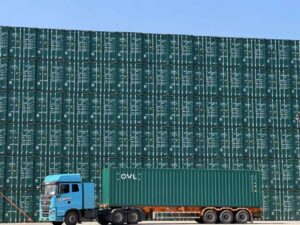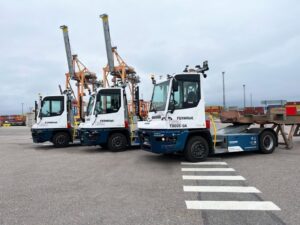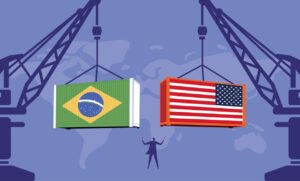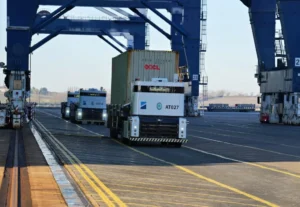As the Terminal Industry Committee (TIC 4.0) released its initial batch of technical standards for the ports sector, data standards remained a key topic of discussion at the Container Terminal Automation Conference 2021 (CTAC 2021).
Following the publication of a white paper in March 2021, the Committee released its second publication, “Container Handling Equipment Activity and Power Source Concepts and Definitions” or TIC4.0 2021.1.
To achieve a common language that can be represented in an understandable format, TIC 4.0 has created a semantic set of rules which helps in the creation process of the definitions and vocabulary.
Presenting at CTAC 2021, Boris Wenzel, Founder, TIC 4.0, said, “With the components of this semantic you can define any reality that both humans and machines can understand.”
He added that it can be adapted to any type of protocol and is technology agnostic.
The publications of TIC4.0 2021.1 contains 25 definitions and explains the context for the application of the definitions, the semantics, dataset roadmap and data model.
The work is ongoing, and these 25 definitions are part of the ongoing work to develop a vocabulary for the cargo handling industry.
Standards are key for the industry as Que Tran, Head of IT – Europe & Russia, DP World, noted, “Standardisation can help maximise compatibility, interoperability, repeatability and quality.”
A lack of standards, he pointed out, results in increased costs and reduced operational capability.
Challenges remain
While the TIC 4.0 release is a start for the industry the panel highlighted that a number of challenges still remain regarding standardization.
“Standardisation is not there yet, we are really far from it,” said Luis Canto, Deputy CEO & Engineering, Projects and Infrastructure Director, TPE Peru (Yilport).
He made a call specifically to commercial equipment suppliers to work together to produce standards across port and cargo handling equipment. Specifically, Canto raised the issue of maintenance procedures being particularly difficult without standards as each suppler works alone.
“We have the expenditure in maintenance…having a better standardisation there would help us save a lot in terms of inventory and when to change parts. Having standard equipment would help us learn more about the behaviours, how to improve things and how to overcome any bottlenecks.”
“After a lot of failed attempts, we should try and demand it from the commercial suppliers – they should help the ports standardise this equipment.”
He also noted, “competition makes standardisation very difficult because the ports are scared to share.”
Canto proposed accident information could be a first step towards building trust could be through the sharing of accident information where ports are less likely to compete because it is a safety issue.
Sahar Lemancyzk, Managing Partner, Bloog Consulting, said from her experience there is a “need to get ‘the coalition of the willing’ together where ports are setting a good example to each other [through data sharing]”.
During her presentation she noted that data sharing and collaboration is a “rare gem” in the maritime industry because of the competitive advantages associated with not sharing data.
However, she warned that there will come a time when smart technology partners will lift the veil when it comes to sharing rather than hiding, noting that those outside the industry will ultimately use AI and machine learning to make predictions and send this information back to the industry.








